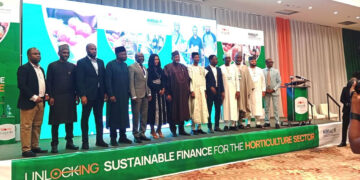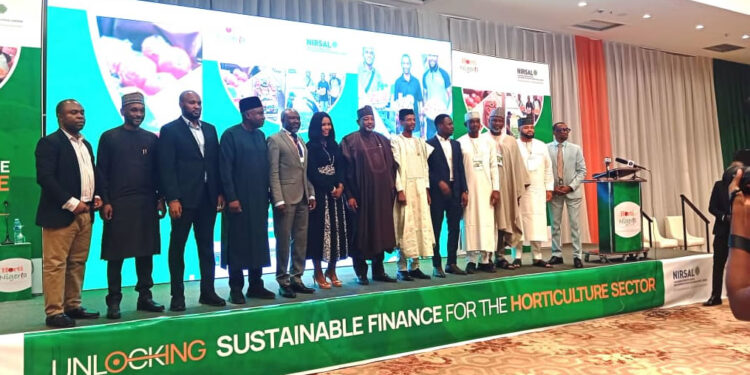In a bold move to transform Nigeria’s underfunded but high-potential horticulture sector, HortiNigeria and the Nigeria Incentive-Based Risk Sharing System for Agricultural Lending (NIRSAL) have launched a joint initiative to dismantle financial barriers that have long stifled growth in this critical agricultural subsector.
At a high-level capacity-building forum in Abuja, stakeholders across government, finance, and development sectors mapped out strategies to redirect capital toward what Agriculture Minister Abubakar Kyari called “Nigeria’s next economic frontier.”
With horticulture contributing significantly to food security and employment but receiving just a fraction of agricultural financing, NIRSAL CEO Sa’ad Hamidu revealed the agency has facilitated N1.23 trillion in agri-lending since 2025 through innovative risk-sharing instruments.
“Banks see horticulture as high-risk, but with proper value chain mapping and products like seasonal loans, it becomes high-reward,” Hamidu asserted, highlighting 200% yield boosts in Southwest states using Dutch greenhouse technologies.
Netherlands Embassy advisor Foluso Adejoro reported surging interest from Dutch agribusinesses, with 16 companies exploring Nigeria’s horticulture market this year, up from 11 in 2024.
Global players like East West Seed are already demonstrating the sector’s viability through seed innovation and cold chain investments.
On his part, HortiNigeria’s Mohammed Idris noted the program has upskilled 70,000 farmers nationwide despite northern security challenges, with protected cultivation enabling year-round production.
Also present at the forum was the Country Director, International Fertiliser Development Centre, IFDC, Nigeria, Dr. Yusuf Dramani, who challenged bankers to overcome risk aversion, noting that while agriculture drives 24% of GDP, it attracts just 4% of formal lending.
The training equipped financial institutions with tools to navigate the horticulture value chain, from seedling financing to export logistics, with Minister Kyari urging tailored products like equipment leasing for young agripreneurs adopting climate-smart technologies.
As Nigeria’s population hurtles toward 400 million by 2050, this public-private push signals a strategic pivot toward high-value crop investment that could position the country as Africa’s horticulture hub while cutting $10 billion annual food import bills. With Dutch technology and de-risked capital, stakeholders predict the sector could triple its economic impact within five years.




































